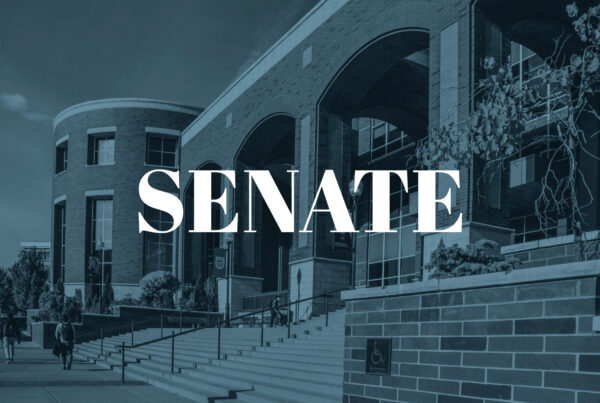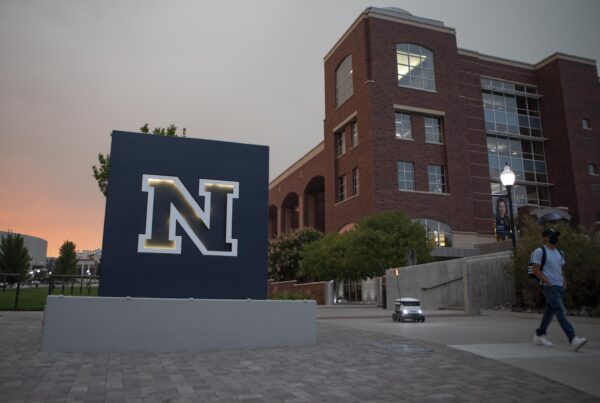Legislation was passed to redistribute unused senator salary money and presentations were given by the department of Fitness and Recreation and by the university’s Residential Life, Housing and Food Services at the Nov. 12 meeting of the Senate of the Associated Students of the University of Nevada (ASUN).
Legislation
“S.B. 93 – A Bill to allocate $1,000 of the Current Unused Funds placed for Vacant Seats within the Senate into the Senate Outreach Budget for FY 2026” is a bill that moves unused salary funds into the ASUN general fund. The continuous vacancy of senate seats over the course of the 93rd senate session has resulted in an accumulation of salary money that was never paid out. This bill transfers $1000 of that money into the senate’s outreach budget, which is used for events and other student-facing purposes.
The bill passed unanimously.
“S.B.R. 93 – A Binding Resolution to Add a Liaison to the Office of Digital Learning for the Committee on Academics and Student Affairs” is a resolution that creates a liaison position tasked with communicating with the university’s Office of Digital Learning. The senate’s liaison positions designate a specific senator as the point of contact for communication between the senate and other campus entities.
Several senators questioned why a new liaison position would be created within the senate’s Committee on Academics and Student Affairs when the committee has multiple existing liaison positions that are not held by anybody. Members of the Committee on Academics and Student Affairs said that Parliamentarian Jason Issa had already volunteered to hold this new liaison position, and that the committee had discussed the topic and decided they could handle the extra position.
After initially failing to garner enough votes, the resolution passed unanimously after the committee members’ clarifications.
Presentations
A presentation was given to the senate by Dean Kennedy of the university’s Residential Life, Housing and Food Services. Kennedy described their operations and spoke about the rising cost of on-campus housing and food. He said that recent massive increases in the price of on-campus housing stemmed from post-COVID inflation and the need to service debt on the residence halls that the university does not own; they only currently own three residence halls and are still paying bond on the rest (Kennedy did not clarify which ones are owned and which are not).
Kennedy said that the university will propose a rate increase of 3.2% on average for housing and 4% percent on average for meal plans at the upcoming Nevada System of Higher Education Board of Regents meeting in December, with the increases to take effect in the 2026-2027 school year. Kennedy presented a chart displaying the average monthly cost for on-campus housing at universities throughout the west and pointed out that Nevada is cheaper than many other campuses.
A presentation was also given by Sheena Harvey, the director of the university’s department of Fitness and Recreation. Harvey spoke about the results of a student survey that her department ran in February 2025 as well as the department’s financial situation. She said they were stable due to recent fee increases approved by the Board of Regents, which went towards maintaining existing facilities and programs as well as pay increases for full-time staff and student workers.
College of Agriculture, Biotechnology and Natural Resources Senator Grace McAndrews asked about the flooding of the gym earlier this year and how that impacted the university financially. Harvey said the flooding occurred when student workers accidentally bumped a fire sprinkler while moving workout mats, and that all the damage was covered by insurance.
Riley Overstreet can be reached via email at roverstreet@unr.edu.








